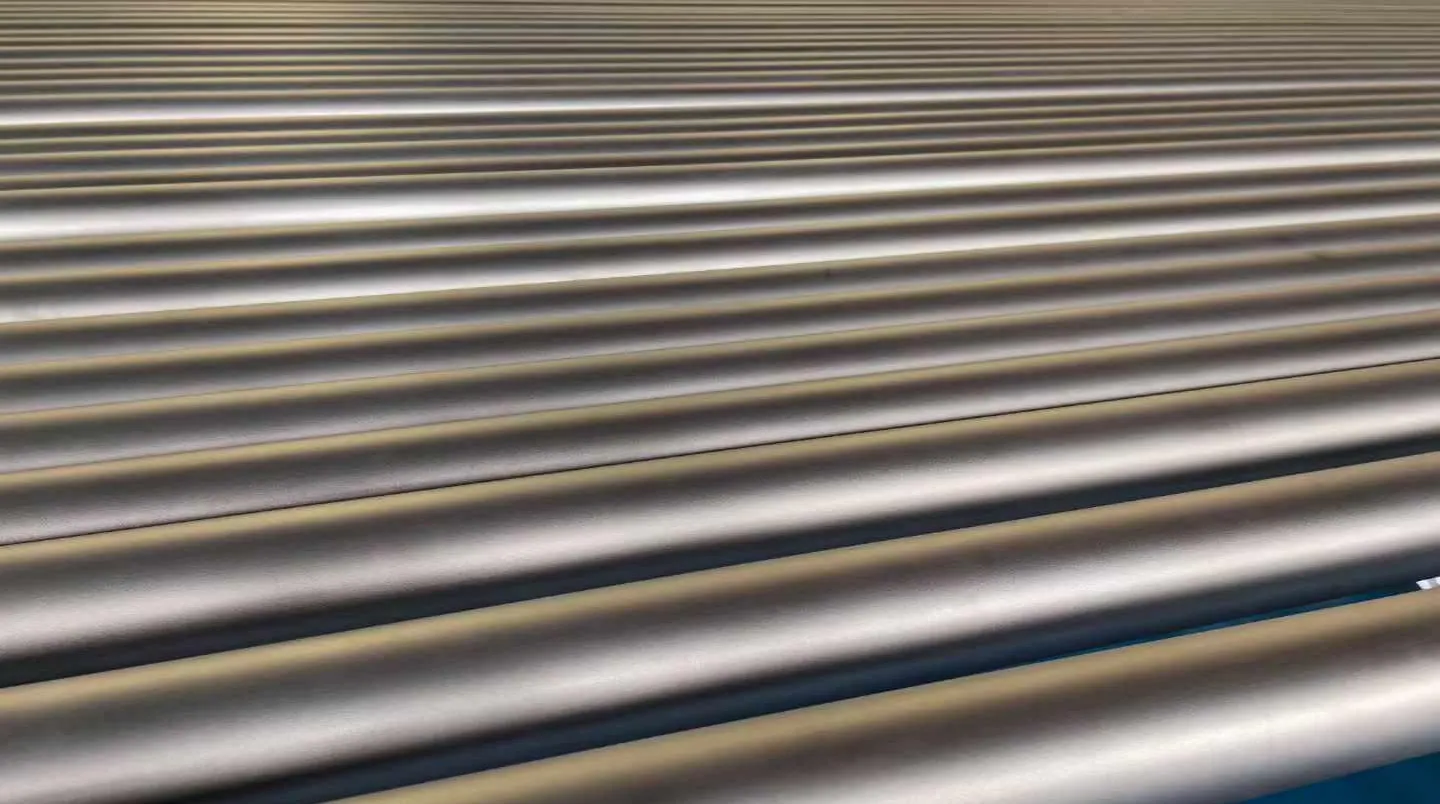A titanium flange have an indispensable role to play in the face of enormous engineering challenges. The choice of each component in the pipe and fitting affects the performance of the system.Often, when standard materials are used they can fail under pressure, heat or corrosive chemicals. Reliable Stainless Steel Pipe and Fittings Manufacturer presents you with all you need to know about Titanium Flanges.
What is a Titanium Flange? The Ultimate Performer!
Titanium flange is a high quality connecting part. It connects pipes, valves and equipment. It creates a secure, leak-proof seal in critical piping systems. These flanges are machined from various titanium alloys. They are known for their excellent strength-to-weight and corrosion resistance ratio. Titanium flanges are high-performance solutions for demanding industries.
Key Titanium Flange Standards
| Standard | Description / Application |
|---|---|
| ASTM B381 | Standard for Titanium Forgings (covers flanges) |
| ASME B16.5 | Pipe Flanges and Flanged Fittings (dimensional) |
| ASME B16.47 | Large Diameter Steel Flanges (dimensional) |
| ISO 7005 | Metallic Flanges (general international standard) |
| DIN EN | European Flange Standards (specific grades) |
Core Advantages of a Titanium Flange
Titanium flanges offer compelling advantages. Their unique properties directly improve system reliability and result in significant long-term cost savings.
Titanium flanges are resistant to a wide range of corrosive chemicals. These include chlorides, oxidising acids and seawater. A passive oxide layer is formed to prevent pitting and crevice corrosion.
Titanium boasts incredible strength for its low weight. A titanium flange reduces overall system mass. This simplifies installation. It is ideal for weight-sensitive applications.
Titanium maintains excellent mechanical properties. It resists creep at elevated temperatures. This ensures structural integrity in hot process environments. It performs well where many metals degrade.
High-velocity fluids can cause wear. A titanium flange resists combined erosion and corrosion. This extends its lifespan in abrasive fluid transport. It reduces maintenance needs.
Some titanium grades are biocompatible. This is critical for medical and pharmaceutical uses. A titanium flange is non-toxic. It does not react with body fluids.
Types and Applications of Titanium Flanges
| Flange Type | Primary Use |
|---|---|
| Slip-On Flange | Lower pressure, easy alignment |
| Weld Neck Flange | High pressure/temperature |
| Blind Flange | System sealing/testing |
| Lap Joint Flange | Piping rotation, easy removal |
| Threaded Flange | Non-welded, low pressure |
Get PDF File Of Flange
Technical Specifications: Titanium Grades for Flanges
| Alloy Grade | Characteristics | Common Applications |
|---|---|---|
| Grade 2 (CP-Ti) | Commercially Pure. Good Corrosion. | Chemical, Marine, Desalination |
| Grade 5 (Ti-6Al-4V) | High Strength. Versatile. | Aerospace, Medical, High Pressure |
| Grade 7 (Ti-Pd) | Excellent Crevice/Pitting Resist. | Aggressive Reducing Acids |
| Grade 12 | Enhanced Corrosion. Weldable. | Chemical Processing, Heat Exchangers |
Titanium vs. Stainless Steel Flanges
| Feature | Titanium Flange | Stainless Steel Flange |
|---|---|---|
| Weight | Very Light | Heavier |
| Corrosion | Exceptional; all chlorides | Good; limited by chlorides |
| Temperature | High (up to ~600°C) | Moderate to High |
| Strength | High Strength-to-Weight | High Overall Strength |
| Cost | Higher Initial | Lower Initial |
| Typical Use | Chemical, Marine, Aerospace | General Industrial |
Installation and Maintenance of Aluminium Flanges
- Cleanliness is Key: Thoroughly clean all surfaces. Remove all contaminants. This prevents hydrogen pick-up and embrittlement.
- Gasket Compatibility: Use appropriate, non-contaminating gaskets. PTFE or graphite are common choices. They ensure tight, leak-free seals.
- Proper Torque: Apply precise torque specifications. Uneven tightening can lead to failure. Use calibrated tools.
- Avoid Galvanic Contact: Isolate titanium from dissimilar metals. Prevent galvanic corrosion. This is especially vital in conductive environments.
- Regular Inspection: Periodically check for any signs of wear. Look for leaks. Proactive maintenance extends the lifespan.
Contact Us
- RM901 No.22 Tangjiaqiao Road Wenzhou China
- +86 577 8551 1171
- [email protected]
- https://www.kaysuns.com/



